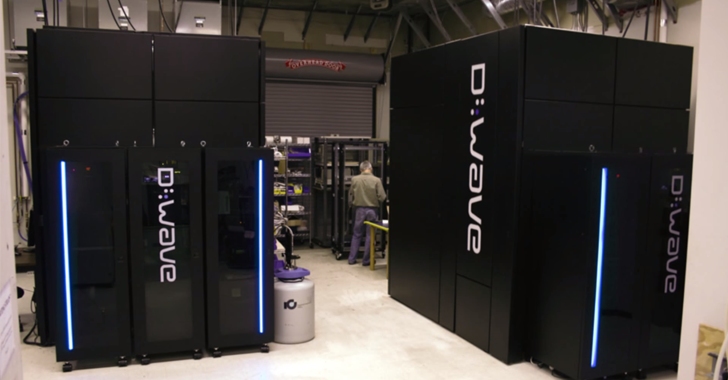Quantum Computing and SEO

The Guardian newspaper recently asked its readers the question “has the age of quantum computing arrived?” In the world of search engine technology the short answer to this question is “yes”. Google has been testing and utilising the power of quantum computing for some time now in an effort to improve its search results. In October 2015, Google announced the existence of the artificial intelligence component of its algorithm known as RankBrain. Whilst many in the SEO sphere had been anticipating AI developments in search, the announcement still surprised many people as Google also stated that this new component was one of the most critical factors in determining the ranking of resources on the web. It’s almost certain that RankBrain’s deployment and announcement wouldn’t have been possible without the aid of quantum computing.
There is plenty of evidence to link Google’s use of quantum computing to their RankBrain algorithm. Prior to the launch of RankBrain in 2015, they made the following announcement:
“GOOGLE IS UPGRADING its quantum computer. Known as the D-Wave, Google’s machine is making the leap from 512 qubits—the fundamental building block of a quantum computer—to more than a 1000 qubits. And according to the company that built the system, this leap does not require a significant increase in power, something that could augur well for the progress of quantum machines.” Source.
Certainly, computers with this level of computational power will assist with the ultimate aim of RankBrain, which is to sort through, understand and learn from billions of web pages then deliver the most relevant results. This is the basis of semantic search, which has been at the heart of Google’s development strategy since their inception.
How does quantum computing assist RankBrain?
I’ll readily admit that I’m no expert on quantum mechanics, the subject is notoriously brain taxing and has perplexed some of the greatest minds in physics. So, I will keep the science brief! In simplest terms, quantum computing provides the computational power required to do extremely complex calculations quickly by borrowing the concepts of superposition and entanglement as theorised in quantum mechanics. In regular computing a bit can be a 0 or 1, however, through superposition each quibit in Google’s quantum computer can be 0 or 1 or 0 and 1. What this means is that Google can perform two equations at the same time and, as the Guardian article states “two qubits can perform four equations. And three qubits can perform eight, and so on in an exponential expansion. That leads to some inconceivably large numbers, not to mention some mind-boggling working concepts.”
Whilst increasing Google’s computational power without increasing their use of resources is clearly a key aim in the adoption of quantum technology, the desire to make a breakthrough in artificial intelligence and create computers that can “think” like a human is of paramount ambition. This makes perfect sense for an organisation like Google whose ultimate concern is with truly understanding the intent of its search engine users. Who can better understand what someone is trying to look for than an actual human being who is an expert on the subject matter? By investing heavily in AI development, Google hopes to replicate the reasoning capability of a human with the extended capability of being able to sort and understand a vast amount of data quickly.
What does this mean for the future of SEO?
Google’s investment in AI is likely to lead to its ever increasing capability to assess and understand the theme of a web page and the authority of that page on the domain it is served on. For businesses, this means it’s increasingly imperative for them to focus on and display their expertise via their web properties. This is especially critical for organisations who provide services based on knowledge and experience. Businesses should be thinking about how they can better address the needs and questions of their customer base, so that those searching on a particular topic are more likely to encounter their content. This requires a renewed focus on content strategy and on improving the quality of web pages. Detailed and in-depth pages should result in the “long-click”, keeping users on your site longer and helping Google’s RankBrain learn from each users’ action.

